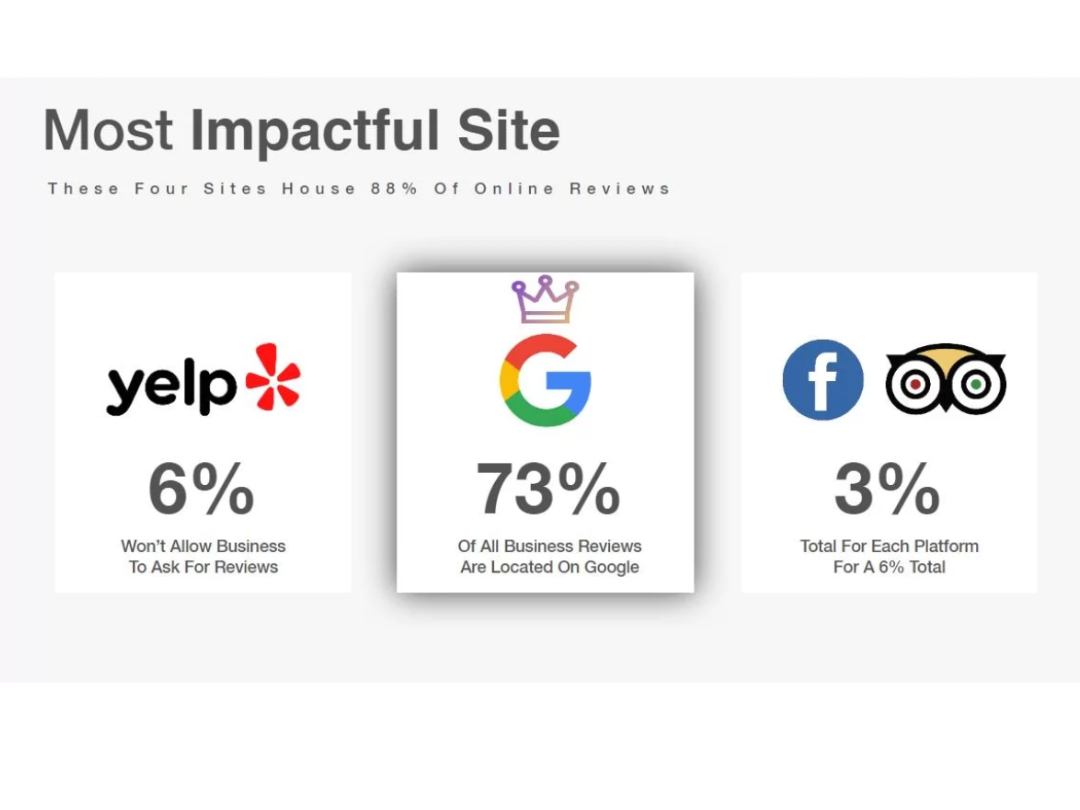In today's digital age, online reviews have become an integral part of the consumer journey. With the rise of platforms like Google and Yelp, businesses now have the opportunity to showcase their strengths and connect with customers in a more transparent and interactive way. However, navigating these platforms can be a daunting task, and it's crucial to understand the nuances and impact of each.

The Google Giant
Google has undoubtedly become a king in the online review world. With its vast reach and integration into various aspects of our digital lives, it's no surprise that Google reviews have become a significant factor in shaping consumer perceptions. When someone searches for your business on Google, the reviews are prominently displayed, serving as a powerful first impression.
One of the most significant advantages of Google reviews is their visibility. With Google being the go-to search engine for most users, positive reviews on this platform can significantly boost your business's online presence and credibility. Additionally, Google reviews can have a direct impact on your local search rankings, making it easier for potential customers in your area to find you.
The Yelp Niche

While Google may have a broader reach, Yelp has carved out a niche for itself in the world of online reviews. Known for its dedicated community of reviewers, Yelp has become a go-to source for detailed, personal, and often anecdotal reviews, particularly in the restaurant and local services industries.
One of the strengths of Yelp is its stringent policies against manipulated or solicited reviews. This fosters a sense of trust and authenticity among users, who value genuine feedback from real customers. Additionally, Yelp's filtering algorithm aims to surface high-quality reviews, ensuring that businesses with consistently positive experiences are highlighted.
Weighing the Pros and Cons

As with any platform, both Google and Yelp have their own set of advantages and disadvantages that businesses must consider.
On the Google side, the sheer reach and visibility of reviews can be a game-changer for businesses looking to improve their online reputation. However, the open nature of Google reviews also means that anyone can leave a review, regardless of whether they've had a genuine interaction with your business, leading to the potential for fake or misleading reviews.
Yelp, on the other hand, offers a more specialized and engaged community of reviewers. While this can be beneficial for businesses in certain industries, it also means that Yelp may have a smaller overall user base compared to Google. Additionally, Yelp's filtering system, while designed to promote authenticity, can sometimes inadvertently filter out legitimate reviews.
The Art of Reputation Management
Regardless of which platform you choose to focus on, effective reputation management is key. This includes actively monitoring and responding to both positive and negative reviews in a timely and professional manner. Engaging with your customers' feedback not only shows that you value their opinions but also provides an opportunity to address any concerns and improve your business operations.
Implementing tools and strategies to encourage satisfied customers to leave reviews can also be beneficial. However, it's crucial to remember that soliciting or incentivizing reviews can be seen as manipulative and can ultimately harm your business's credibility. A tool like Review Magnet will help you manage your reviews all in one place, making it easier to respond to reviews in a timely manner.

The Verdict
In the end, there is no clear-cut winner between Google and Yelp reviews. Each platform offers its own unique advantages and caters to different audiences. The key is to understand your target market and where they are most likely to engage with your business.
For businesses with a broader customer base, maintaining a strong presence on Google may be more crucial, as it can significantly impact visibility and local search rankings. On the other hand, businesses in niche industries or those targeting a more specific demographic may find greater value in cultivating a strong presence on Yelp.
Ultimately, the most effective approach is to embrace both platforms and leverage their respective strengths. By actively managing and responding to reviews on both Google and Yelp, businesses can not only enhance their online reputation but also foster trust and build stronger connections with their customers.
If you would like to learn how to gain more reviews and manage reviews for your business, take a look at Review Magnet. This tool is great for increasing reviews and managing them.
 Add Row
Add Row  Add
Add 








Write A Comment